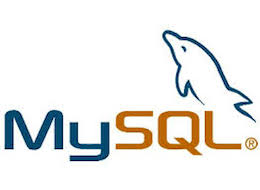MySQL 9.0 Released

MySQL, the world’s most popular open-source relational database management system, has taken a significant leap forward with the release of version 9.0. This latest iteration, unveiled on July 1, 2024, brings a host of new features, performance enhancements, and security improvements that are set to reshape the landscape of database management. As an innovation release, MySQL 9.0 offers cutting-edge capabilities while maintaining the reliability and efficiency that users have come to expect from this stalwart of the database world.
In this article, we’ll delve deep into the new offerings of MySQL 9.0, exploring its advanced features, performance optimizations, and the implications for both developers and database administrators. Whether you’re a seasoned MySQL veteran or a newcomer to the platform, this comprehensive guide will provide valuable insights into the latest advancements in database technology.
What’s New in MySQL 9.0
MySQL 9.0 introduces several significant new features that enhance its functionality and usability:
Advanced JSON Handling
One of the most notable additions in MySQL 9.0 is the improved handling of JSON data. The new version allows JSON output from EXPLAIN ANALYZE commands to be saved directly into user variables, making it easier to analyze and optimize complex queries.
Support for DDL Commands in Prepared Statements
MySQL 9.0 now supports CREATE EVENT, ALTER EVENT, and DROP EVENT commands in prepared statements, providing developers with greater flexibility and control over their database events. New
Performance Schema Tables
The introduction of the variables_metadata and global_variable_attributes tables in the Performance Schema enables users to access more detailed information about system variables and their attributes, facilitating better performance monitoring and tuning.
Deprecated and Removed Features.
To maintain a lean and efficient codebase, MySQL 9.0 has deprecated and removed certain features:
Removal of mysql_native_password Authentication Plugin
The mysql_native_password authentication plugin, which was deprecated in MySQL 8.0, has been completely removed in version 9.0. The server now rejects authentication requests from older client programs that lack the CLIENT_PLUGIN_AUTH capability. For backward compatibility, mysql_native_password remains available on the client side as a dynamically loadable plugin.
Deprecation of MIN_VALUE and MAX_VALUE Columns
The MIN_VALUE and MAX_VALUE columns in the Performance Schema’s variables_info table are now deprecated and may be removed in a future version. Users are advised to use the corresponding columns in the variables_metadata table instead.
Performance Improvements
MySQL 9.0 brings several performance enhancements to ensure faster and more efficient data processing:
Replication Performance Enhancements
Significant improvements have been made to MySQL’s replication performance, allowing for faster synchronization between the source and replica servers. These optimizations enable businesses to scale their databases more effectively and handle higher volumes of data.
Bug Fixes and Optimizations
Numerous bug fixes and performance optimizations have been implemented in MySQL 9.0, including improvements to SELECT … GROUP BY query performance. These changes ensure that the database runs smoothly and efficiently, even under heavy load.
Security Enhancements
Security is a top priority in MySQL 9.0, with several enhancements designed to protect data and prevent unauthorized access:
Enhanced Authentication Methods
MySQL Enterprise Edition now supports more secure authentication methods, such as LDAP and Kerberos, providing businesses with robust options for managing user access to their databases.
Additional security features and enhancements have been introduced in MySQL 9.0, ensuring that data remains safe and secure. These improvements include fixes for potential vulnerabilities and the strengthening of default security settings.
Compatibility and Upgrade Considerations
When upgrading to MySQL 9.0, it’s essential to consider compatibility and potential issues:
Upgrade Path from MySQL 8.0 to 9.0
MySQL provides a clear upgrade path from version 8.0 to 9.0, with detailed instructions and best practices to ensure a smooth transition. However, users should carefully review the changes and deprecated features to identify any potential impact on their existing applications.
Backward Compatibility Issues
While MySQL strives to maintain backward compatibility, some changes in version 9.0 may require modifications to existing applications. Developers should thoroughly test their code against the new version and make necessary adjustments to ensure seamless operation.
Community and Enterprise Editions
MySQL 9.0 is available in two editions – Community and Enterprise – each catering to different user needs:
Differences Between Editions
The MySQL Community Edition is a freely downloadable, open-source version suitable for most general-purpose applications. On the other hand, the Enterprise Edition includes additional features, tools, and support tailored for mission-critical and high-performance environments.
Exclusive Features in Enterprise Edition
The MySQL Enterprise Edition offers exclusive features not found in the Community Edition, such as advanced security enhancements, performance monitoring tools, and priority support from Oracle.